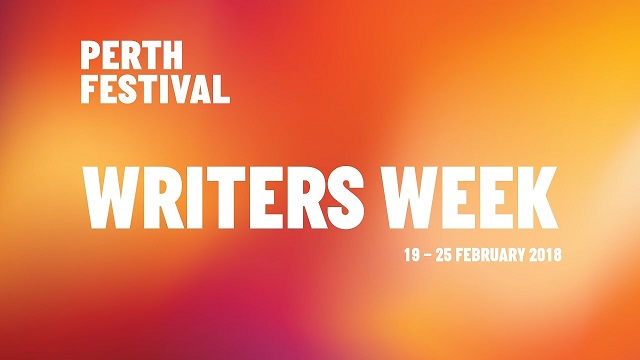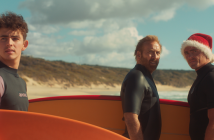Please note this review is for 2018 not 2019. For some reason it’s appears to have dropped off. I’m adding it back in as, during the recent Writing WA Forum we were lucky enough to get a peak at some of the ideas for 2020. During the discussion I promised I’d send this review to someone on the 2020 organizing committee. So here it is for anyone else interested.
Two things are true. Change is never easy, and success is a function of a clearly defined goal. This year (2018) saw the Perth Writers Festival undergo a major metamorphosis after 15 years. Would the changes herald the birth of a new species, one full of youthful enthusiasm and fresh ideas, or a longing to return to the familiar womb?

The first hint of change came with the announcement that the weekend events would be extended over a week, and held across various metropolitan venues, a suggestion that was received with open arms. The content of this review is limited to the weekend events at UWA as having a full-time job I, like many others, only have time for literary exploration at the weekend. The feedback is based on comments made to me by random patrons I had the pleasure of meeting, ladies administering the online survey, writer friends and other comments overheard. In the spirit of remarks made on the weekend by the perennially wise A.C. Grayling, about ‘creating new forms not just tearing down’, this piece attempts to provide constructive feedback rather than critical review.
As promised at the preview night, the troublesome tents had been eradicated except for one enormous structure over the amphitheatre. The amphitheatre worked extremely well as a focal point, with good sound, good visibility and a fabulous atmosphere especially as the sun set. Less enthusiastic comments were made however as the sticky Sunday weather left some patrons hankering for the air conditioners of old, who would have thought? Just as well it wasn’t the usual 40 degree February weather.
As with any writers’ event a handful of speakers were singled out for providing thought provoking insights, great entertainment or a terrific laugh, rather than just selling their wares. The ability to meet them at the signing table was deemed invaluable by some patrons.
The retention of the free sessions, a much-loved aspect that sets the Perth event apart from its eastern states counterparts, was heralded and well supported. Also successful was the ability to buy tickets online at the last minute rather than having to line up at a box office.
Added to this the close proximity of events was well received by people with injuries, disabilities and the elderly.
Sadly, that is the extent of the positive comments made to me over the weekend. At first I thought the rumblings of discontent could be explained by peoples innate resistance to change. By day two however when concerns were voiced, and loudly applauded by the assembled crowd, I took more notice. The concerns focused on ten main areas as outlined below.
The program
Initial mumblings were about the printed program. Comments made focused on the lack of information about the session topics and those appearing. Patrons said this made it hard to get enthusiastic or make choices. A retreat to the website didn’t help, evidently.
Session times
A further concern with the program was the overlapping of sessions. Patrons reminisced about previous years when they had just enough time to slip between session. To do this day I have no idea how they managed that sleight of hand. This year several events overlapped, some only slightly, but enough to mean that patrons had to make more of a choice rather than roll up on the day and flit between the smorgasbord of sessions. As a result some of my workaholic friends decided to miss the weekend altogether as they didn’t have the time to plan their weekend.
The venues
There’s no doubting the University Club is a stunning venue, one patrons would often retreat to in previous years for a moment of reprieve, especially on the heaving mass that was Family Day. The decision to minimize the event footprint to the immediate radius around the Club drew a range of reactions from patrons. Many said they enjoyed the air conditioning, while the small session rooms didn’t fare so well, especially when patrons were left standing at the back of the room due to over-subscription.
Ticketing
While talking about ticketing, at the other end of the spectrum was the embarrassing situation of a national icon speaking to 39 patrons in a vacuous Banquet Hall, while the crowd outside couldn’t buy tickets as ‘the computer said no’. Online the session was listed as sold out.
Queues
Regular festival attendees know to expect queues, especially for food and beverages. In recent years this issue had been resolved with the introduction of a designated food truck area. I, for one, was pleased to read that this would be continued this year. In reality though some caffeine depleted patrons commented that one food truck and two coffee vans does not a food truck section make.
Of more concern to patrons however were the queues to get into the main venues, the Banquet Hall and Auditorium. Deciding to hold a session in a Banquet Hall would surely suggest the likelihood of a large audience, which in turn would imply the need to open all four doors and employ at least four volunteers to check tickets. The reality was one young volunteer manning one open door, her deer-in-headlights expression contradicting the impressive job she did. This could be excused if modern technology meant all tickets had to be scanned, but many patrons handed over paper tickets. Consequently, for most of these sessions the queue snaked around the corner and into the café to get mixed up with people ordering coffee. It wasn’t long before waiting patrons decided to open a second door and make their own way in, only to be told to exit so they could be counted off. Most didn’t comply rendering the count null and void. This unique approach to queue management meant ticket-holders were still pouring in after the sessions had started, something seated patrons decided to comment on, loudly, in front of the international guests on stage.
Readings
The decision to start each session with a reading was interesting. Some authors read a small passage, undoubtedly wishing they didn’t have to read at all, others not so. I was told of one gentleman who read for seven minutes. Seven minutes out of a 30 minute session that included housekeeping instructions and a welcome to country. Another example relayed to me was of a panel of five authors, each reading for two minutes, thereby taking up one third of the session. Or the two renowned speakers reading for five minutes each. The reduction to 30 minutes was another hotly debated topic in the café, as was the need for a welcome to country at each session, rather than once at the beginning of the day. As a result moderators were often left with time for only one or two questions but countless missed opportunities.
Writers events offer the prospect of getting to know authors, to hear about their writing process, the difficulties they face, and a myriad of other insights that can only be achieved when creative minds have time to sit down and chew the fat. Given the depth of experiences and wisdom on the stage, we can only wonder what interesting ideas, ground breaking solutions, or inspiration for new books could have been garnered, had they had time to chat. I was extremely fortunate to be in one session where we were privileged to a such an exchange. A fascinating discussion between two great minds who greatly respected each other. We watched on like naughty children hiding in the corner of the lounge hoping the adults in the room hadn’t seen us, as they broached the subject of male friendships in the modern era. Just as one of elders was about to voice his sudden moment of clarity, the moderator had to call time. I hope they continued the debate in the corridor.
Audience questions
Audience questions can be a mixed bag, there’s always someone, usually the person with the least knowledge, who decides to avail the presenter with their own theory rather than ask a question. Often though an audience member, perhaps a long-time fan, will ask a far more pertinent question than a moderator who has only had time to read the most recent book. Sadly, this year the time taken up with readings meant audience questions were not just limited, but often non-existent. Several patrons expressed their regret at being told they could ask their questions at the signing table. The flow on effect was long queues at the signing table as patrons took the opportunity to ask their questions, the insights shared between them rather than a wider audience.
Signing tables
Evidently the frustration at the signing table was added to by the fact that the book purchasing space was small, with patrons squished in as they waited for books to be unpacked.
Writing Workshops
Many of the above comments point to teething problems that can be ironed out. Meanwhile some of the saddest feedback I received originated from writers. Writers, the very people who toil away year on year and without whom there would be no books and therefore no festival. While they pointed out a number of logistical issues, they were more concerned about the lack of writing workshops. Extending the format beyond a weekend into a week made them think there might have been greater opportunity to attend and or teach workshops.
The audience
Of even greater concern than all of these logistical points however was a statement which I first heard as a whisper in the queues until it was strongly declared and heavily applauded during one of the sessions. It was pointed out that this year’s audience was largely made up of white, older, western suburbs patrons. When such an audience declares the event ‘elitist’ you have to take note. Underlying this was considerable discussion about whether the festival had ‘had their funds cut’ or been ‘held to ransom’ by the UWA Club, a point often debated though not resolved. With so many magnificent venues in Perth, including other universities, surely this cannot be the case. Either way the general consensus of those who spoke to me was that the event felt less patronized, less inclusive, less grand and less to be proud of.
The bottom line?
As with any initial change to an iconic event the 2018 Perth Writers Week received mixed reactions, which will no doubt be reflected in the survey that took place. Ultimately the feedback I received lead me to the conclusion that the iconic rambling Perth Writers Festival has morphed into a Perth Festival Readers Week. Undercurrents of such a shift started appearing in previous years and it would appear that 2018 has seen them fully actualized.
If the objective was to target readers wanting to ‘try before they buy’, book clubs and authors or publishers releasing new books, then the goal was achieved, albeit with several functionality issues not least of which a bookshop that was deemed ‘hopelessly inadequate’ and ‘lacking in organisation’. This created another lost opportunity as several patrons reported buying ‘one book each instead of our usual four’. If the objective was to open reading up to a wider audience, to grow the pie, then the feedback I received suggests there is further work to be done.
Still all is not lost.
If the future of the event lies in being a Readers Week, this creates space for an alternative Perth Writers Festival. One focusing on the needs of current and emerging writers who will ultimately feed back into the Readers Week. Hopefully someone, perhaps one of the enthusiastic local writing centres, will take up the challenge to fill this space.
In the meantime, I thank and congratulate the organisers for attracting an interesting group of authors to Perth, for kicking some goals (e.g. the amphitheater), for completing what must have been a daunting task and setting in motion a rebirth. I also thank all those patrons who stopped for a chat. I look forward to seeing how the event grows and trust this collection of comments from patrons provides some assistance.




